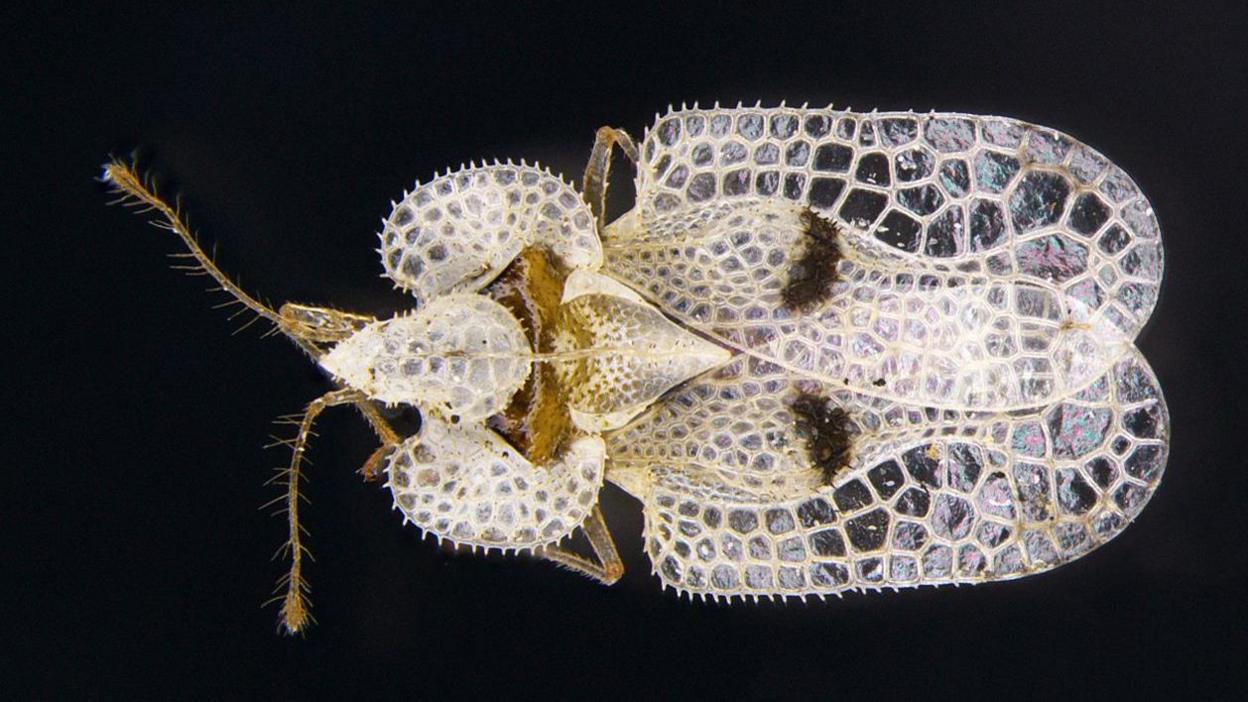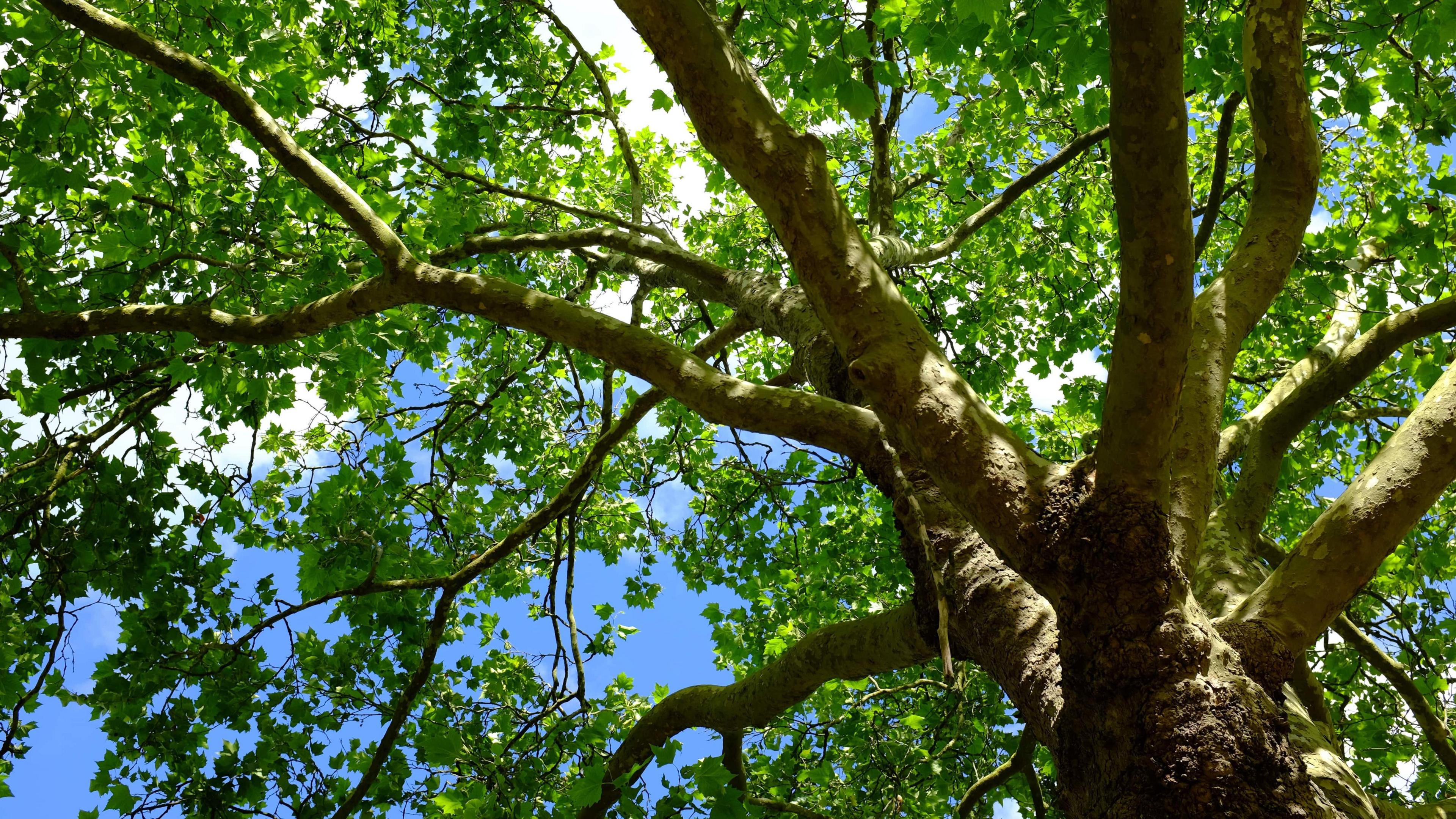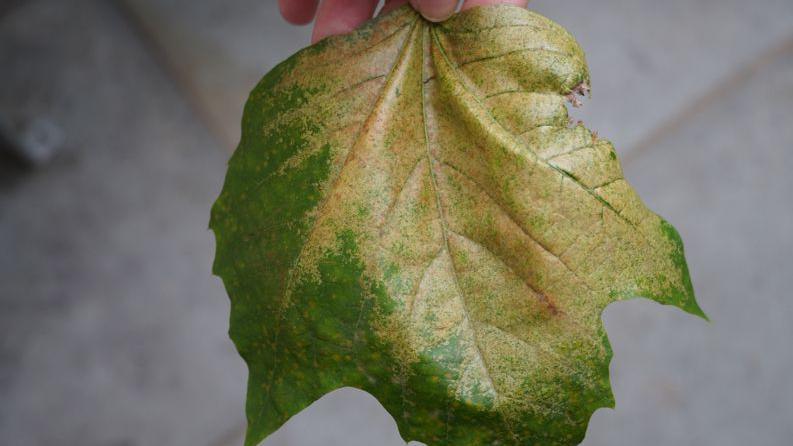Hunt for invasive bug damaging London trees

The recent sighting of the plane lace bug is the first in 18 years in the UK
- Published
Volunteers are searching for an invasive species of bug which poses a threat to plane trees lining streets and parks in London and other cities.
The Woodland Trust says a team of "Observatree" volunteers are supporting official survey activities to track the appearance of the plane lace bug, native to North America and now widespread in Europe.
The move comes after the first sighting of the bug in the UK in 18 years, which was traced back by the Forestry Commission to an outbreak on trees in central London.
Woodland Trust experts warned the discovery of the bug was "a serious concern".

An outbreak of the bug was found on trees in central London
Volunteers are scouring the area and reporting any other sightings across the UK to track the spread of the insect.
They use binoculars to look for yellow discolouration on leaf veins caused by the bugs.
Woodland Trust experts say the bugs weaken and damage plane trees by sucking their sap. They are attracted to weakened trees, likely to be found in London where they are stressed by other environmental factors.

The bugs cause the plane trees' leaves to yellow
The tiny insects make trees susceptible to other pests and diseases and in severe cases can cause death in combination with fungal infections.
The Woodland Trust said they could be a nuisance in large numbers, landing on people in parks and getting into homes.
It added the insects had occasionally been reported to bite people, which can cause a mild rash.
'Hitch-hiking'
Investigations are continuing into how the plane lace bug arrived in the UK.
Vicky Bolton, citizen science officer leading the Observatree volunteers at the Woodland Trust, said: "It is a very small invertebrate that is great at hitch-hiking on vehicles, clothing or bags, and the density of planes in London means this pest may spread quickly, as seen in other European countries."
The capital's most common tree is the London plane, a cross between an American sycamore and Oriental plane.
It is a popular choice for city planting because it is tough and resistant to pollution.
Andrea Deol, of the Forestry Commission, said they were "conducting further surveillance" and urged people to report suspected plane lace bug findings online, external.
Listen to the best of BBC Radio London on Sounds and follow BBC London on Facebook, external, X, external and Instagram, external. Send your story ideas to hello.bbclondon@bbc.co.uk, external